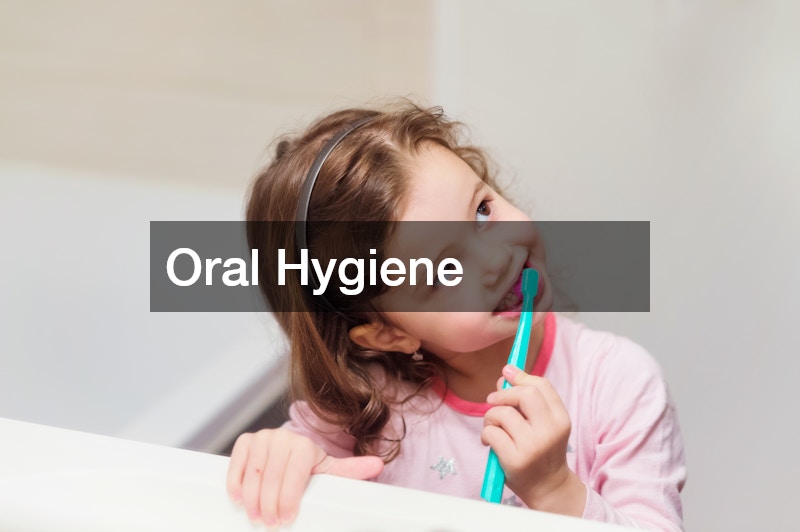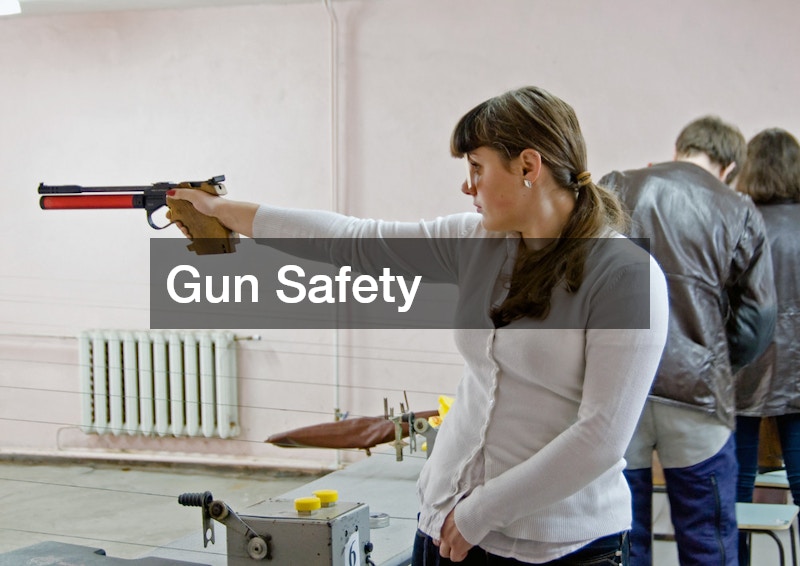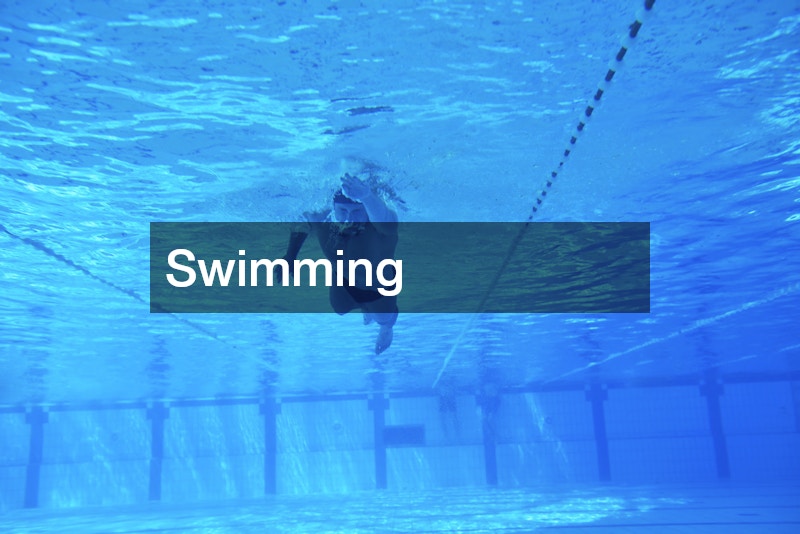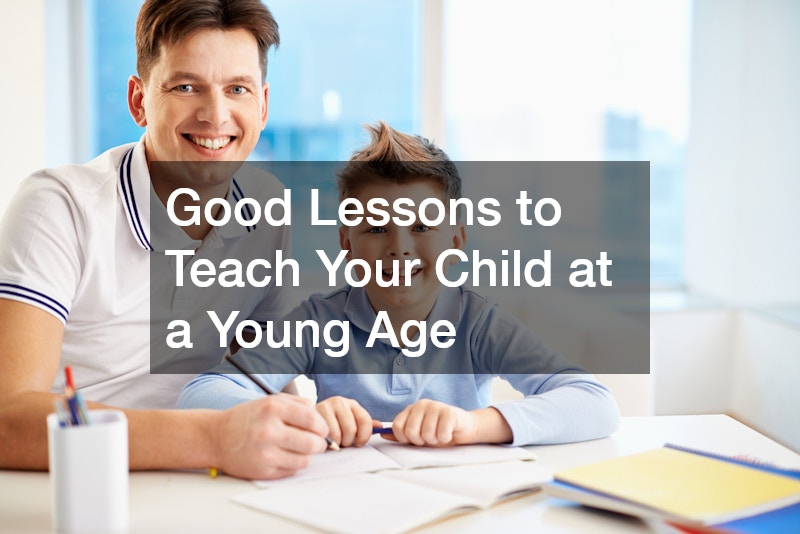Throughout life, we encounter many opportunities to learn valuable lessons that shape our character, skillset, and perspective. These lessons are often best learned through practical activities that engage us in different ways. By undertaking tasks that require focus, discipline, and awareness, we can cultivate habits that last a lifetime. From the importance of maintaining good oral hygiene to understanding the implications of gun safety, these activities serve as the foundations of a well-rounded and responsible individual. Below, we’ll explore a variety of areas, such as the creativity sparked by playhouse activities, the importance of strong study habits, and the respect for nature fostered by engaging with a tree nursery. The ultimate goal is to recognize not just the technical skills acquired, but the good lessons these activities impart. These lessons are what guide us, shaping our ability to succeed, respect, and contribute positively to the world around us. Join us in discovering how each of these aspects integrates into daily life, enhancing not just proficiency but also personal growth.
Oral Hygiene

Maintaining oral hygiene is often instilled in us from a young age, with visits to the dentist serving as a critical reminder of its importance. These early lessons about brushing, flossing, and regular dental check-ups are foundational. A dentist not only helps in maintaining a beautiful smile but also teaches us the broader connection between oral health and overall well-being. Such good lessons encourage us to take responsibility for personal health.
Practicing good oral hygiene promotes the development of discipline and routine. It teaches individuals the importance of self-care through continuous efforts and consistent habits. This discipline is a stepping stone to other areas in life where regular maintenance ensures longevity and quality, echoing the principle that prevention is better than cure.
Moreover, the good lessons learned from maintaining oral hygiene stretch beyond health. They involve understanding the social aspects of presentation and confidence linked to a healthy smile. This influences personal interactions, contributing to better social skills and self-esteem. Thus, oral hygiene is not just a routine; it is a lesson in embracing a holistic approach to health and well-being.
Imagination
Imagination is the cornerstone of creativity and problem-solving, and activities like playhouse sessions are incredible tools for nurturing this trait. A playhouse is not just a structure for children to play in; it is a gateway to different worlds where creativity knows no bounds. The good lessons from engaging in such imaginative play are numerous and vital in early development.
Through play, individuals, particularly children, learn to develop narratives, role-play, and solve problems creatively. This form of engagement allows them to express emotions and experiment with different scenarios in a safe environment. These creative explorations often translate into the ability to think outside the box in real-life situations, fostering innovative thought processes.
The collaborative nature of playhouse activities also promotes essential social skills. Children learn to communicate, negotiate roles, and work within a team, helping in building empathy and understanding. These good lessons in collaboration are crucial as they lay the foundation for effective teamwork in adulthood, enhancing interpersonal relationships.
Gun Safety

Gun safety education is pivotal in communities where firearms are common, with the cornerstone of this education being the understanding and usage of gun safes. A gun safe is an essential tool for ensuring firearms are kept out of children’s reach and unauthorized access, teaching responsibility and safety. These good lessons are vital in cultivating respect towards firearms.
While handling firearms, individuals learn the importance of strict adherence to safety protocols. This discipline in following rules extends into other aspects of life, emphasizing the importance of rule-following and respect for potential hazards. Understanding the gravity of handling firearms responsibly instills a deeper sense of accountability.
Furthermore, education in gun safety often involves a community-oriented approach by encouraging discussions and awareness. Such education fosters a culture of safety and open communication about potential risks and preventative measures. The good lessons drawn from gun safety advocacy promote a safer, more informed community, highlighting the power of collective responsibility and awareness.
Strong Study Habits
Developing strong study habits is essential for academic success, laying the foundation for future learning. This often begins in school, where structured learning environments teach students how to manage time and prioritize tasks. The good lessons learned in school extend beyond academic fields, providing a framework for lifelong personal development.
Effective study habits teach the value of discipline, focus, and perseverance. These traits allow individuals to set and achieve goals methodically, understanding the importance of incremental progress. Such lessons are invaluable in any career or personal project, where consistent effort and organization lead to success.
Additionally, the emphasis on understanding rather than rote memorization fosters critical thinking skills. Students learn to question, analyze, and synthesize information rather than just consuming it passively. These good lessons promote intellectual curiosity and open-mindedness, which are essential traits for innovators and leaders of tomorrow.
Swimming

Swimming is not only a vital life skill but also an excellent venue for imparting good lessons about discipline and safety. Swim lessons provide structured environments where individuals learn to respect water and its potential dangers. These lessons are crucial to ensuring safety and building confidence in aquatic environments.
Through regular swim lessons, individuals develop physical fitness and stamina. Meeting physical challenges and setting fitness goals enhances personal strength and endurance. The discipline required to attend lessons and practice consistently mirrors the dedication necessary to achieve success in other life endeavors.
Moreover, the collaborative environment in swimming includes encouraging cooperation, whether in team activities or helping others learn. This fosters a sense of camaraderie and mutual support, illustrating the good lessons of teamwork and community spirit. These lessons are transferable to many aspects of life, from professional teamwork to community involvement.
Cleanliness
The importance of cleanliness cannot be overstated, impacting health and productivity profoundly. For example, the use of a roll off container rental for organized waste disposal underscores the role of environmental stewardship in community hygiene. These practices involve good lessons about responsibility and respect for shared spaces.
Learning effective cleanliness habits focuses on organizational skills and planning. Maintaining cleanliness is not a one-time activity but a continuous effort that requires dedication and consistency. These practices reflect broader values of maintenance and care, vital in personal and professional environments.
Cleanliness also promotes mental clarity and focus. An organized environment reduces stress and allows for clearer thinking and more efficient task execution. Good lessons in organizational hygiene help individuals create spaces that enhance productivity and well-being, illustrating the powerful link between a clean environment and mental health.
Safe Driving

Safe driving is fundamental in today’s world, with auto maintenance playing a pivotal role in ensuring vehicle safety. Regular checkups and adherence to maintenance schedules are essential lessons for anyone using a vehicle. This awareness contributes significantly to reducing accidents and enhancing road safety.
Understanding the technical aspects of auto maintenance, such as tire pressure, engine checks, and brake assessments, instills a deeper understanding of how a vehicle operates. This knowledge fosters a sense of responsibility, highlighting the importance of routine checks and proactive measures in safety.
Moreover, safe driving practices extend beyond mechanical aspects to include behavioral changes. Courses in defensive driving teach anticipation and adaptability, traits that are invaluable in managing not just roads but life’s unexpected turns. These good lessons underpin the broader concept of safety and preparedness in all aspects of life.
Fire Safety
Fire safety is an area where proactive measures are vital, and regular fire alarm inspection stands out as a practical application of this principle. Ensuring that fire detection systems are functional is a crucial lesson in risk management and preparedness, safeguarding lives and property.
The practice of regularly inspecting fire alarms reinforces the importance of vigilance and regular maintenance. These routines are reflective of broader principles of foresight and precaution in life, encouraging individuals to adopt similar strategies in different contexts.
Fire drills and safety education foster a culture of awareness and readiness. With good lessons on how to react in emergencies, individuals learn the importance of calmness, speed, and cooperation under pressure. These practices build resilience, preparing individuals for unforeseen challenges both within and beyond fire safety contexts.
Caring for Animals
Animal care offers invaluable lessons on empathy and responsibility, often facilitated by visits to a veterinarian. Caring for animals demands a commitment to their welfare, teaching respect for life and the duties of a caregiver. These lessons are profound, reshaping our approach to all living beings.
The process of animal care involves regular monitoring of health and learning about different needs. This interaction increases understanding and fosters compassion, developing emotional intelligence skills that are valuable throughout life. Animal care effortlessly bridges the gap between empathy and action.
Engaging with animal care also encourages learning about ecosystems and habitats. Individuals can learn about balance and the interconnectivity of life forms. This education provides good lessons in environmental responsibility and respect for diversity, fostering an informed perspective on natural conservation.
Respect for Nature
Respecting nature through activities like visiting a tree nursery provides hands-on good lessons about preservation and sustainability. A tree nursery is more than a collection of plants; it is a dynamic environment showcasing the cycle of life and the importance of environmental stewardship.
Learning about plant care, growth cycles, and the environmental impact highlights the significance of sustainability practices. These lessons are critical in promoting respect for natural resources and the need to protect them. This insight is key in thriving environmentally conscious communities.
Moreover, participation in nature-focused activities fosters a connection with the environment. This bond encourages sustainable practices and supports the development of a conservationist mindset. The good lessons learned here inspire a lifelong commitment to protecting and nurturing the planet.
New Languages
Teaching a child a new language early in life offers numerous cognitive, social, and emotional benefits. Early language acquisition enhances brain development, improving memory, problem-solving skills, and cognitive flexibility. Children who learn multiple languages tend to excel in creativity and multitasking, as their brains adapt to switching between languages. Socially, they develop stronger communication skills and greater empathy, as they can understand diverse cultures and perspectives.
Additionally, bilingual children often perform better academically and have more career opportunities in the future. Early language learning also boosts confidence, as children gain a sense of achievement and self-expression. Moreover, it helps in building stronger connections with diverse communities and fosters an appreciation for global diversity.
Children exposed to multiple languages from a young age often have improved listening skills, allowing them to absorb and process information more efficiently. This foundational skill contributes to better reading and writing abilities as they grow. By introducing a new language early, children not only gain practical language skills but also become more adaptable, open-minded, and globally aware individuals.
Money Management
Teaching children about money management is crucial for their future financial well-being and independence. Early financial education helps children understand the value of money, the importance of saving, and the consequences of spending beyond their means. When children learn about money at a young age, they develop essential skills that will guide them throughout their lives, such as budgeting, goal setting, and making informed financial decisions.
Learning about money also teaches children the concept of delayed gratification, as they begin to understand the balance between spending now versus saving for future needs or wants. This can foster a sense of responsibility and encourage smart financial habits, reducing the likelihood of financial struggles in adulthood. Additionally, children who are taught money management skills early on are more likely to make informed choices when it comes to credit, loans, and investments as they grow older.
Introducing children to basic financial concepts like earning, saving, spending, and giving can also cultivate empathy, as they understand the role money plays in supporting both personal goals and charitable causes. This type of education prepares children to manage not only their finances but also their values, helping them become financially literate, confident, and well-prepared for the complexities of adult financial life.
Engaging in these varied activities exposes individuals to a range of good lessons that extend well beyond the specific skills learned. Whether through the discipline of oral hygiene or the creativity fostered in a playhouse, these lessons equip individuals with essential life skills. The understanding and responsibility derived from gun safety, along with the critical thinking and perseverance nurtured through strong study habits, are foundational for personal growth. Moreover, the lessons in collaboration from swimming or the environmental mindfulness from a tree nursery highlight the interconnectedness of these teachings. By embracing these activities and the lessons they impart, we can develop a more thoughtful, empathetic, and proactive approach to life’s challenges. Thus, as we proceed in our daily lives, let us remember these good lessons and strive to apply them holistically, ensuring we not only enhance our own lives but also positively impact the world around us.


